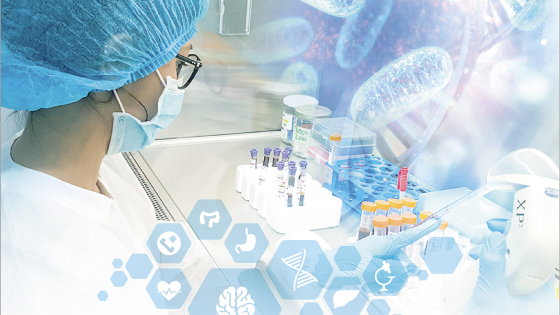Advances of mitochondria as a therapeutic agent
The mitochondria is close to transitioning from an intracellular organelle to a therapeutic agent. Before its full application to patients it is important to understand key aspects regarding its extracellular survival and interaction with host cells and tissues. As new and exciting research is being evidenced, such as the presence of functional mitochondria outside cells in blood and their genetic editing, a concerted effort is required to understand how mitochondria could be applied to treat diseases and lesions and to what extent. The development of new therapeutic options in medicine has been hampered by the lack of consensus among practices, how assays are performed, and how results are published. The Universidad San Francisco de Quito (USFQ), Mitochondrion, the Universidad de los Andes in Chile (UANDES), Cells for Cells, the School of Medicine USFQ, Medical Students Association USFQ, the iBioMed Institute USFQ, Dragon BioMed USFQ and ThermoFisher Scientific collaborate to launch the special issue and online webinar “Advances of mitochondria as a therapeutic agent”.
Broadcast Facebook and Youtube Live :
The link will be shared through the social media of USFQ, Dragon BioMed, and event partners.
Register for updates!
https://forms.gle/KoCL2CqtyHhnEFFg7
Speakers
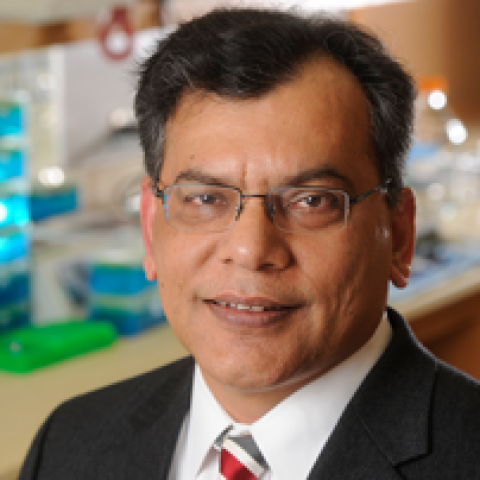
Keshav Singh, PhD
Dr. Singh is one of the world leaders in the field of mitochondrial determinants of health, disease, diversity, health disparities and personalized medicine. Currently, he is the Joy and Bill Harbert Endowed Chair and Director of Cancer Genetics at the University of Alabama at Birmingham. He is also a Professor of Genetics, Pathology and Environmental Health. Besides a mitochondrial role in health and disease, he is an expert in mitochondrial genetics, numtogenesis, cancer genetics, and cancer health disparities. He is the founding editor-in-chief of the Mitochondrion journal as well as Cancer Health Disparities.
Dr. Singh founded the Mitochondria Research and Medicine Society in the US and India and is instrumental in promoting understanding and awareness of the mitochondrial diseases around the globe. He has organized numerous scientific meetings and workshops on mitochondria related topics. He has also given many keynote lectures and chaired or co-chaired scientfic sessions in national and international professional meetings. Dr. Singh has served or serves on the editorial board of many journals. He is the author of more than a hundred research publications and three books. He has served or serves on expert grants review panels in the United States, Austria, Italy, UK, Poland, Singapore, and other countries. He has won numerous awards.
Dr. Singh did his undergraduate degree in India, Ph.D. in Australia and the postdoctoral studies at Harvard, USA. After completing his postdoctoral studies, he joined John Hopkins as Assistant Professor of Oncology at Johns Hopkins School of Medicine. Prior to moving to Univeristy of Alabama at Birmingham (UAB), he was at Roswell Park Cancer Institute in Buffalo NY where he rose through the ranks to Professor and then to Distinguish Professor of Oncology.
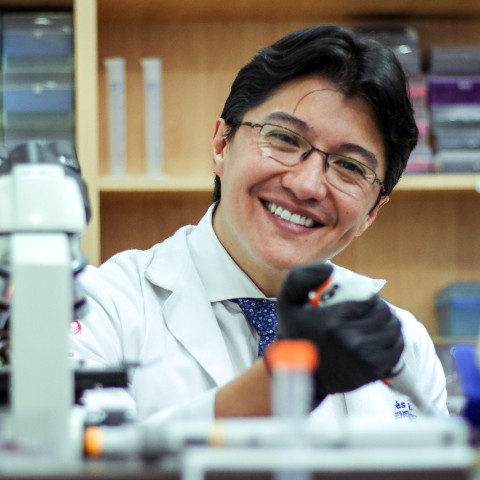
Andrés Caicedo, PhD
Professor - Researcher at USFQ School of Medicine, CEO of Dragon BioMed, Regional Secretary for the International Society for Cell and Gene Therapy (ISCT), Head of Research and Development of Medical Systems (SIME-USFQ). Master and Ph.D. in Cell Therapy from the University of Montpellier, France.
He did his post-doctorate at the Institute for Research in Biotherapies in Montpellier. His team's research work focuses on the use of mitochondria as a therapeutic agent.
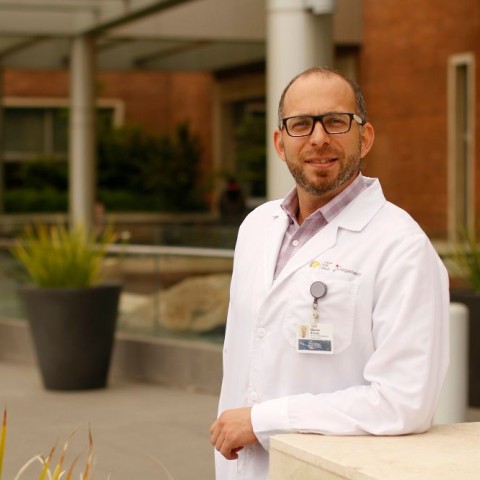
Maroun Khoury, PhD
Researcher at the Faculty of Medicine of the Universidad de los Andes in Chile (UANDES), CEO of Cells for Cells, Scientific Director of the Regenero consortium. Master and Ph.D. in Gene Therapy from the University of Montpellier, France. Postdoctoral fellow at the Koch Institute of the Massachusetts Institute of Technology (MIT), USA, and researcher in charge of a Cell Therapy project at the Singapore-MIT Alliance (SMART) laboratories in Singapore. He is a member of the scientific committee of the International Society for Cell and Gene Therapy (ISCT). His research group belongs to the Cell Therapy and PhD Program of the Center for Biomedical Research and Innovation (CiiB).
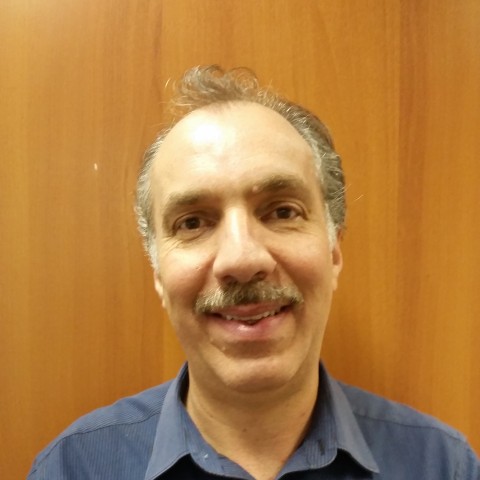
Jayme Nunes de Souza Filho, MSc
Bachelor in Science by University Mackenzie, São Paulo, in 1985
Master of Science signed by University of São Paulo, in 1989
Specialist in Molecular Biology signed by Regional Council of Biology (CRB-1), in 1996 Jayme has started his career in 1991 at former Life Technologies (GIBCO BRL) as Business Scientific Manager until 2001.
He had the opportunity to work for several others well-known Biotech Companies in the Life Sciences Market.
Early 2021, Jayme joined Thermo Fisher Scientific as Market Development Manager with focus on Biosciences.

James D. McCully, MD, PhD
james_mccully@hms.harvard.edu
Associate Professor of Surgery at Boston Children's Hospital, Harvard Medical School Hospital, CSO and founder of CellVie. Dr. McCully's research focuses on the mechanisms that contribute to myocardial cell death. In particular, his laboratory has investigated factors leading to ischemia/reperfusion injury in the neonate, child, mature male and female, and elderly, with particular emphasis on developing novel and specific cardioprotective protocols based on the use of mitochondria as a therapeutic agent.
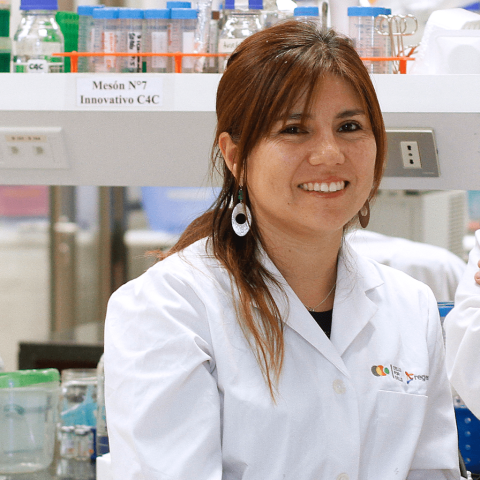
Patricia Luz, PhD
pluz@uandes@uandes.cl
Researcher at the Faculty of Medicine of the Universidad de los Andes in Chile (UANDES), Head of the Immunometabolism and Mesenchymal Stem Cells (MSC) group. His research interests have focused on the study of the regenerative and immunosuppressive capacities of mesenchymal stem cells (MSC). Particularly, the study of the interaction of MSCs with cells of the immune system, particularly with proinflammatory Thelper 1 and Thelper17 lymphocytes. His research team is currently engaged in evaluating the role of metabolism in the immunosuppressive and regenerative properties of MSCs and their extracellular derivatives, including small microvesicles enriched in exosomes using murine models of diseases such as osteoarthritis, graft-versus-host disease, collagen-induced arthritis.
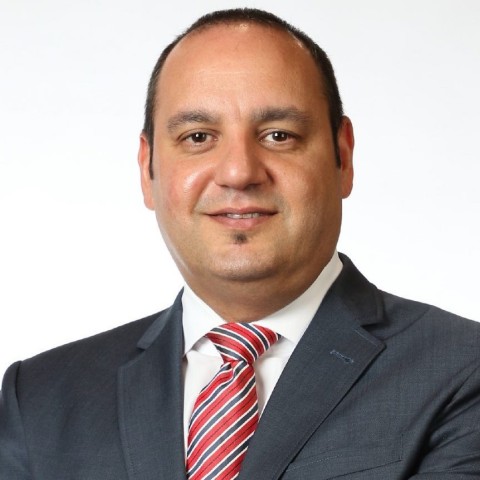
Arash Kheradvar, MD, PhD
arashkh@uci.edu
Professor of Biomedical Engineering and Medicine at the University of California, Irvine. Dr. Kheradvar's research focuses on the field of Cardiovascular Engineering and capitalizes on his multidisciplinary expertise in Bioengineering and Medicine. Projects in his laboratory range from cardiac imaging to heart valve engineering, and from biomechanics and fluid dynamics to regenerative medicine and mitochondrial engineering. Dr. Kheradvar received an M.D. from Tehran University of Medical Sciences in 2000 and a Ph.D. in Bioengineering from Caltech in 2006. He has published over 63 peer-reviewed journal articles, 2 books and is the lead inventor on 38 issued patents (32 US and 6 foreign patents). He is an elected member of the American Heart Association for two councils of Cardiovascular Radiology and Intervention and Cardiovascular Surgery and Anesthesia, and a member of the American Institute for Medical and Biological Engineering (AIMBE). His laboratory has been funded by the NIH and many foundations, including the American Heart Association.
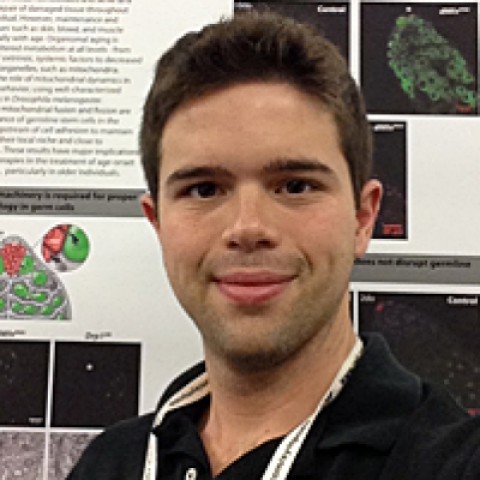
Rafael Demarco, PhD
Rafael.Demarco@ucsf.edu
Postdoctoral researcher at the JonesLab at the University of California, San Francisco. Finalist of the Boyer-Parvin Postdoctoral Award and recipient of the Eli & Edythe Broad Center of Regenerative Medicine & Stem Cell Research Training Grant. Rafael is interested in the intersection between stem cell behavior and mitochondrial metabolism. In particular, his work focuses on understanding whether changes in metabolism can affect stem cell maintenance and activity. Rafael is originally from Rio de Janeiro (Brazil) and his goal also within research is to foster and encourage underrepresented groups to participate in STEM research.
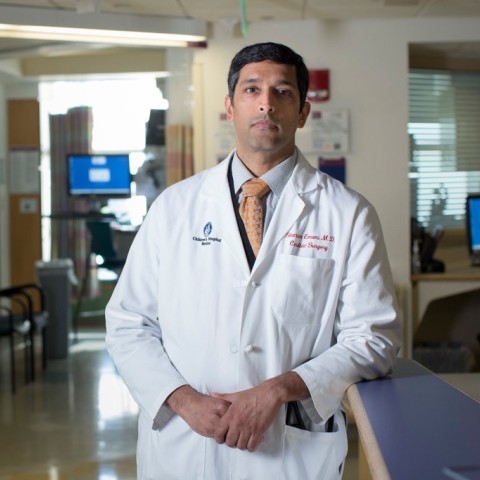
Sitaram Emani, MD
sitaram.emani@cardio.chboston.org
Associate Professor, Department of Cardiac Surgery, Surgical Director of the Adult Congenital Heart Program, Director of the Complex Biventricular Repair Program at Harvard Hospital and Harvard Medical School. Founder of CellVie. His work has been based on therapeutic mitochondrial transplantation (TMT) in order to recover the myocardium after cardiogenic shock. He is the principal investigator in the ongoing clinical trial at Boston Children's Hospital, and was the first to employ TMT clinically.

Alexander G Rabchevsky, PhD
agrab12@uky.edu
Professor of Physiology and part of the Spinal Cord and Brain Injury Research Center (SCoBIRC) at the University of Kentucky. Board member of the No Barriers USA NoBarriersUSA.org. His lab has developed state-of-the-art telemetric monitoring of cardiophysiology before and after spinal cord injury (SCI) to inform that blockade of excitatory neurotransmission with neuropathic analgesics (i.e. gabapentinoids). His work continues to employ refined research tools along with new advances in viral vectors to understand the influences of maladaptive intraspinal plasticity on the incidence and/or severity of AD. In another line of research, he is employing novel anti-sense oligonucleotides to attenuate muscle spasticity in a model of chronic SCI. The goal of these studies is to inject oligonucleotides to inactivate constitutively active 5HT2C receptors in the injured spinal cord that are thought to underlie muscle spasticity using rat models.
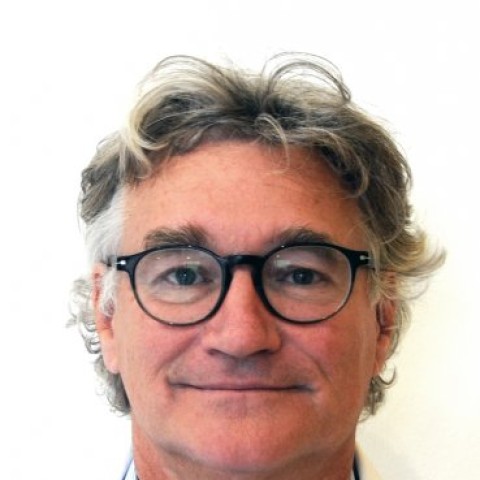
Alain Thierry, MD
alain.thierry@inserm.fr
Principal Investigator of the Biomarkers for Precision Oncology team at the Cancer Research Institute of the University of Montpellier, Campus Val d'Aurelle. The objective of his team is to discover and use predictive and prognostic biomarkers for personalized medicine in digestive oncology. The team is composed of researchers developing fundamental and translational projects and clinicians involved in integrative and clinically relevant research. Our project integrates interdisciplinary skills including fundamental research on signaling pathways, molecular biology, tumor microenvironment studies, imaging biomarker research, biostatistics and clinical research. These skills enable the development of innovative translational research programs on digestive cancers. We are particularly interested in the analysis of circulating cell-free DNA and microRNA, protein dimerization profiles, the oncogenic Wnt/β-catenin signaling pathway and novel predictive medical imaging markers. An additional asset is the integration of methodological research in biostatistics for biomarker evaluation. Particular effort is devoted to the expression of new molecular and genetic markers in liquid and solid biopsies of human tumors and tissues. In accordance with the research program focused on colorectal cancer and carried out in close collaboration with the Integrated Cancer Research Center "SIRIC Montpellier Cancer", we are committed to establish new links between basic research and clinical needs, in order to significantly improve medical practices related to digestive cancers.
Program
| Time | Speaker |
|---|---|
| 10h00-10h30 | Opening Intro Event Andrés Caicedo, PhD / Maroun Khoury, PhD / Jayme Nunes de Souza Filho, MSc Welcome and latest advances of Mitochondria as a therapeutic agent, science behind all the development Keshav Singh, PhD Oral Presentations |
| 10h30-10h50 | James D. McCully, PhD Boston Children’s Hospital Harvard Medical School Teaching Hospital |
| 10h50-11h10 | Andrés Caicedo, PhD Escuela de Medicina, USFQ Dragon BioMed Universidad San Francisco de Quito |
| 11h10-11h30 | Patricia Luz, PhD Facultad de Medicina Cells for Cells Los Andes University, Chile |
| 11h30-11h40 | Video Pause, Promo Thermo |
| 11h40-12h00 | Arash Kheradvar, MD, PhD Department of Biomedical Engineering University of California, Irvine |
| 12h00-12h20 | Rafael Demarco, PhD Department of Molecular, Cell, and Developmental Biology (MCDB) UCLA |
| 12h20-12h30 | Video Pause, Promo Thermo/Dragon BioMed |
| 12h30-12h50 | Sitaram Emani, MD Boston Children’s Hospital Harvard Medical School Teaching Hospital |
| 12h50-13h10 | Alexander G Rabchevsky, PhD Spinal Cord and Brain Injury Research Center University of Kentucky |
| 13h10-13h30 | Alain Thierry, MD Institut de Recherche en Cancerologie de Montpellier Montpellier University |
| 13h30-13h50 | Maroun Khoury, PhD Facultad de Medicina Cells for Cells Los Andes University, Chile |
| 13h50-14h20 | Round Table/Clossing Remarks and Special Issue |

